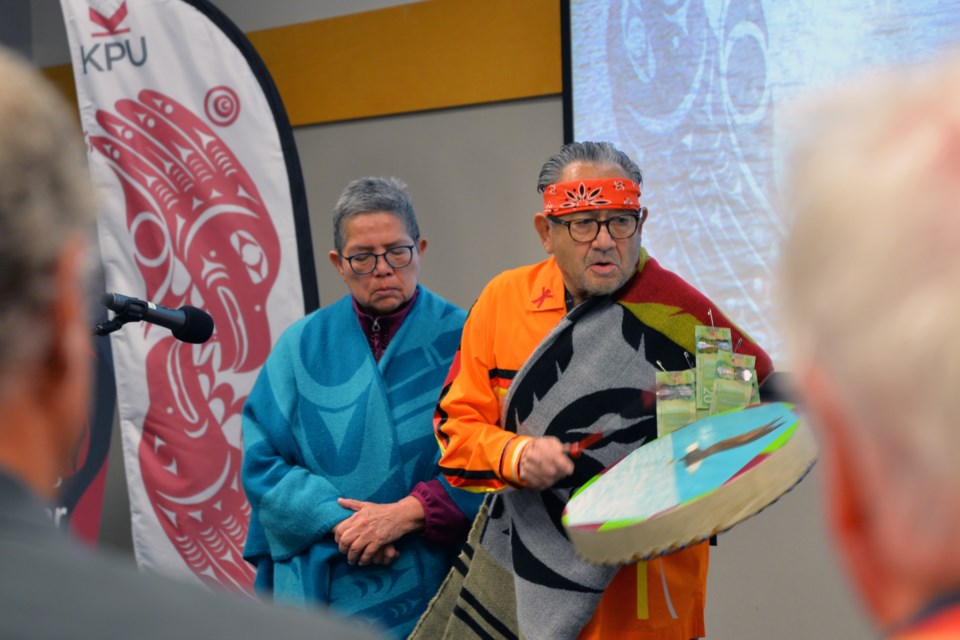Free tuition is coming to more Indigenous post-secondary students, depending on the traditional territory they reside on.
Kwantlen Polytechnic University announced on June 20 it will waive tuition fees for incoming and current students who are members of the Kwantlen, Katzie, Semiahmoo, Musqueam, Tsawwassen, Qayqayt, and Kwikwetlem First Nations.
President and vice-chancellor Alan Davis said the fee waivers are part of the university’s commitment to reconciliation.
While KPU is open for anyone to attend, Davis said the university is regional in nature. As such, it only offered waivers to those members of bands surrounding the campuses in Richmond and Surrey.
“While we welcome students studying here from other areas of B.C. and the world, KPU is a regional institution. This tuition waiver is a recognition that the university operates on the traditional and ancestral lands of the Kwantlen, Katzie, Semiahmoo, Musqueam, Tsawwassen, Qayqayt, and Kwikwetlem First Nations,” stated Davis by email.
KPU chancellor Kim Baird, a past elected chief for Tsawwassen, echoed Davis’ comment.
“KPU is showing respect to the First Nations where it has campuses within their territories and to build connections in those communities,” said Baird.
Baird said it would be better to have tuition waived for all Indigenous students at all post-secondary schools; however, as it stands, KPU is doing what it can to help Indigenous people locally.
“Sadly, it’s not up to one university; it’s up to the system to close those gaps. I think KPU is one that is starting to address it,” said Baird, adding that such initiatives “don’t close all the gaps” and “remote communities have even more barriers than those close to post-secondary institutions.”
KPU follows in the footsteps of the University of Northern B.C., which offers free tuition to the Lheidli T’enneh Nation.
The province’s two largest universities do not offer free tuition for Indigenous students.
The University of B.C. (UBC) said the university gave Indigenous students $6.6 million in financial support last school year. Of the 2,260 Indigenous students, 1,244 received some support from the university.
UBC said it has developed “culturally appropriate services and resources,” such as academic advising, peer mentorship programs, and dedicated Indigenous spaces, clubs, and associations, including at its Okanagan campuses.
Burnaby’s Simon Fraser University (SFU) reported 970 Indigenous students in 2022, who also receive unspecified special financial assistance.
“More work is underway to further reduce financial barriers and improve access to education, including work to establish an Indigenous identities and welcoming practice,” the university told Glacier Media.
Like UBC and SFU, all the post-secondary institutions Glacier Media contacted indicated they offer specific financial awards for Indigenous students but not tuition waivers.
Langara College in Vancouver, which offers scholarships and bursaries for Indigenous students, counted 199 Indigenous students in this year’s spring semester.
Likewise, Capilano University stated, “financial support for Indigenous learners has and continues to be an area of priority for us, and we have a wide range of financial aid, bursaries, and scholarship options, several of which are geared towards Indigenous students.”
Capilano also said it also provides domestic tuition rates to Indigenous students from the United States to align with the Jay Treaty.
This year, Capilano said 375 students self-identified as Indigenous.
The British Columbia Institute of Technology said 1,700 self-identified Indigenous students were enrolled there, and they, too, receive some form of financial support, including bursaries, awards, scholarships, emergency financial support, designated seats for Indigenous learners and Indigenous-specific cohorts. Indigenous students also receive priority access to student housing, a spokesperson noted.
With 850 Indigenous students, the University of the Fraser Valley said it provides some tuition-free courses “in specific areas within the Upgrading and University Preparation calendar.”
“UFV also participates with our partners Douglas College and Langara College in the Indigenous Global Learning Program where most tuition fees and travel costs are waived, giving Indigenous students a chance to experience international education abroad,” a spokesperson stated.
Douglas College did not respond to Glacier Media.
Glacier Media asked the Ministry of Post-Secondary Education and Future Skills if it intends to extend free tuition to all Indigenous people or let individual campuses extend waivers to local bands only. The ministry was unable to comment in time for publication.



